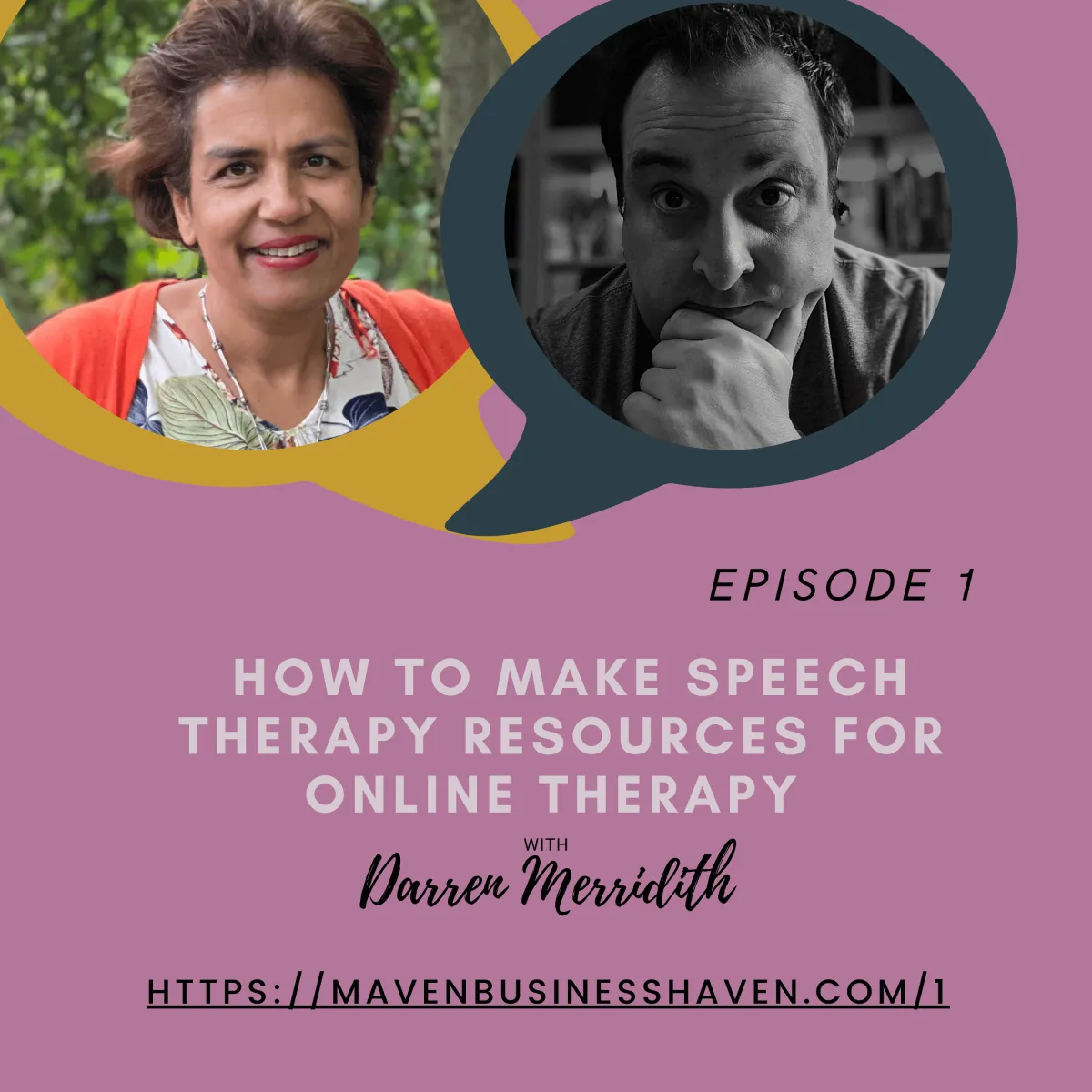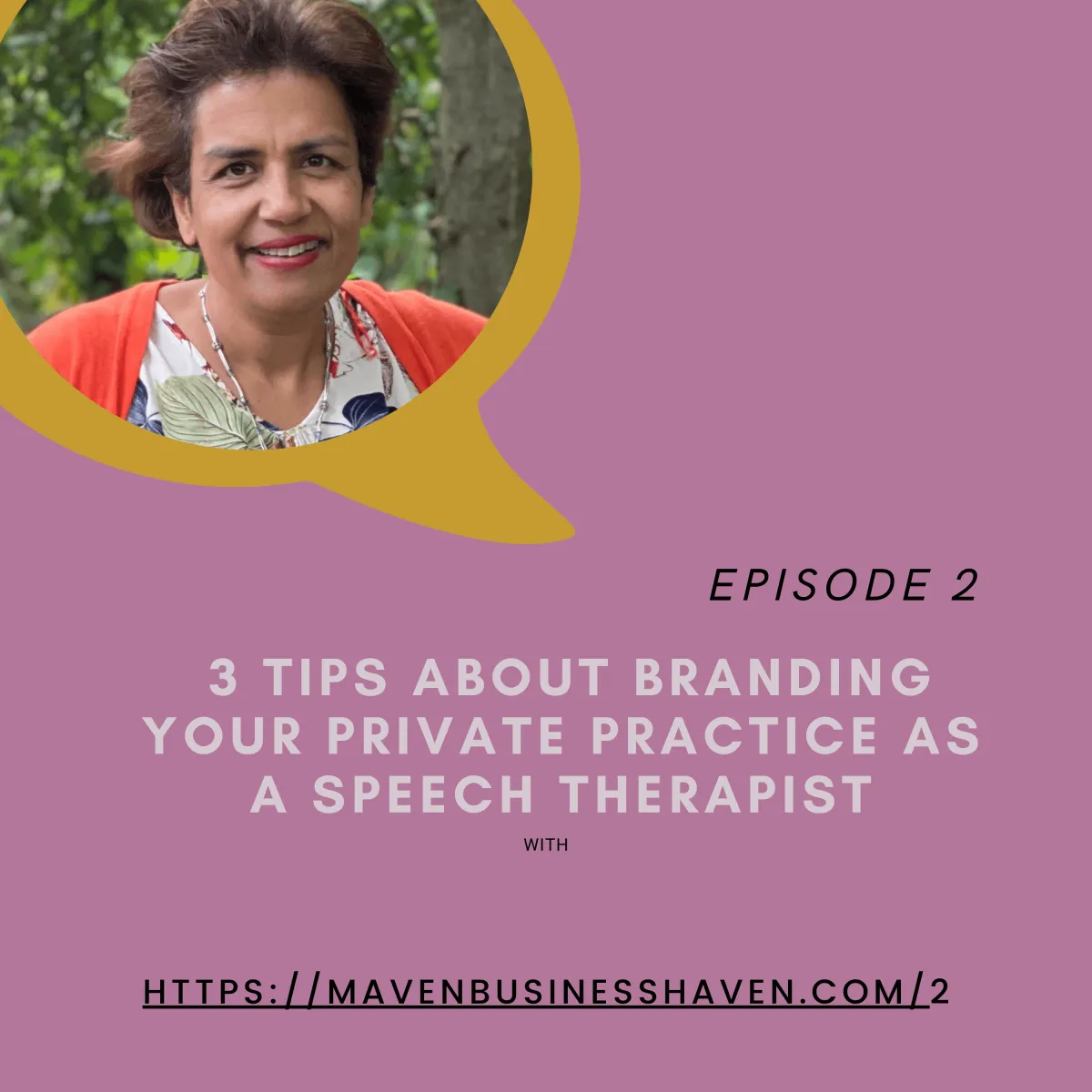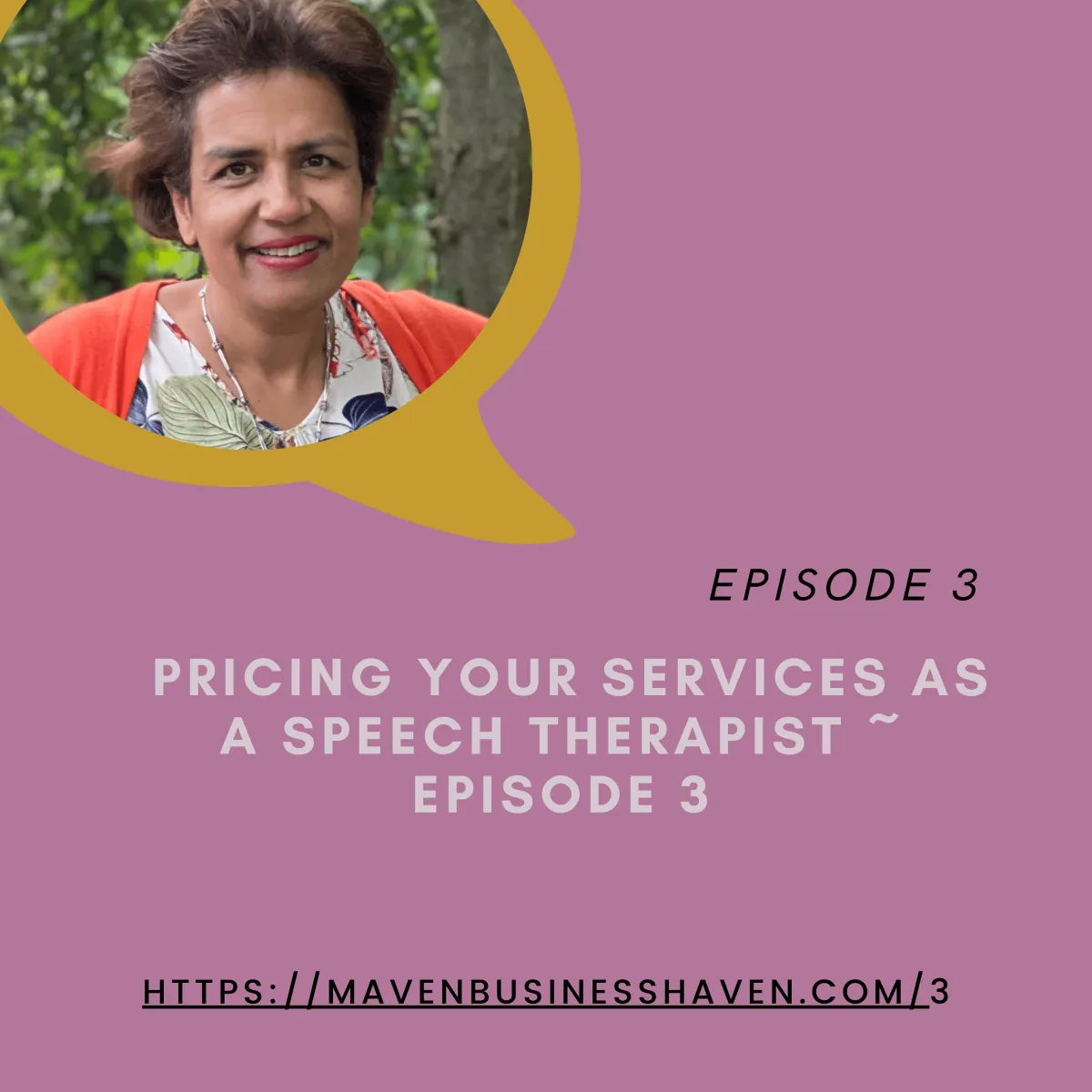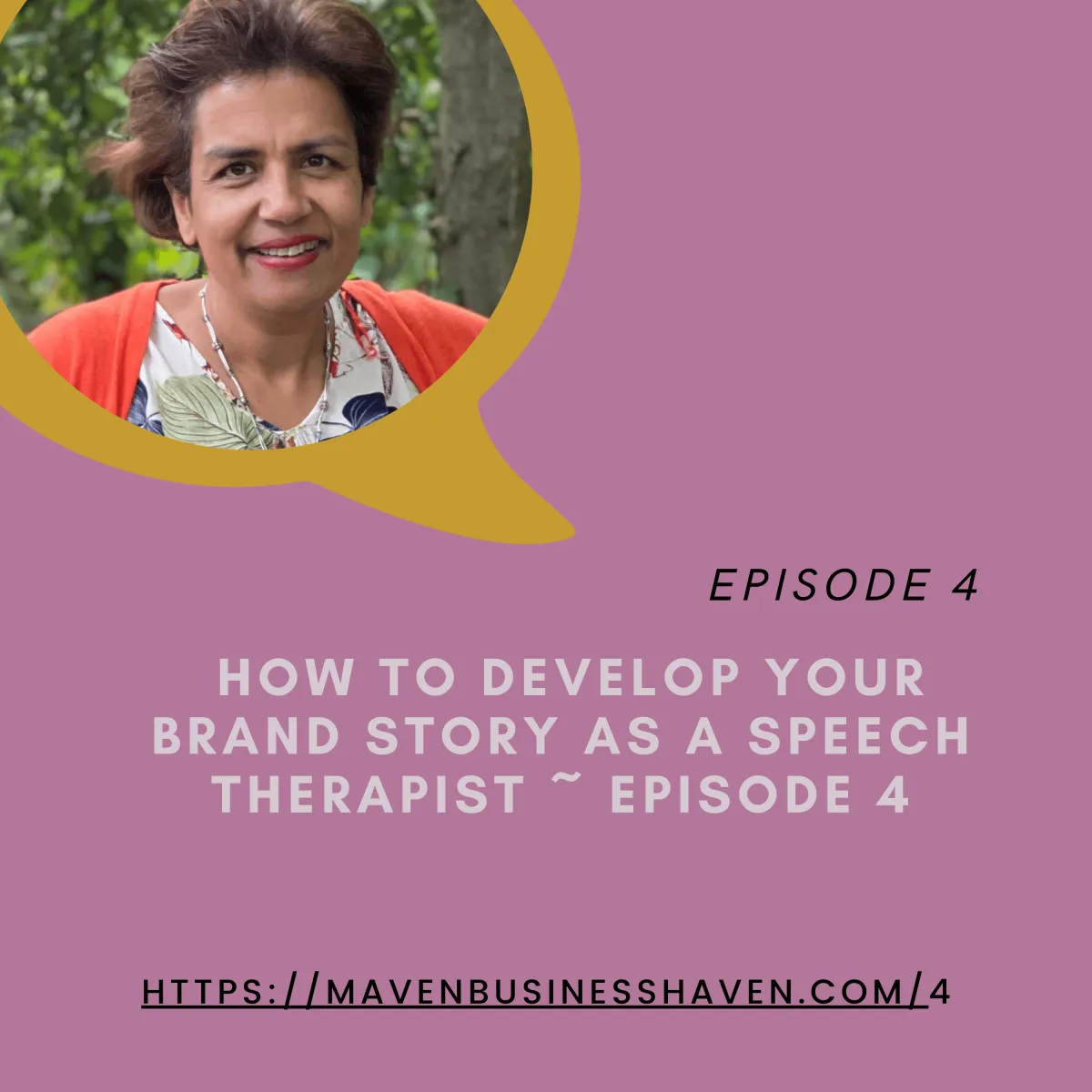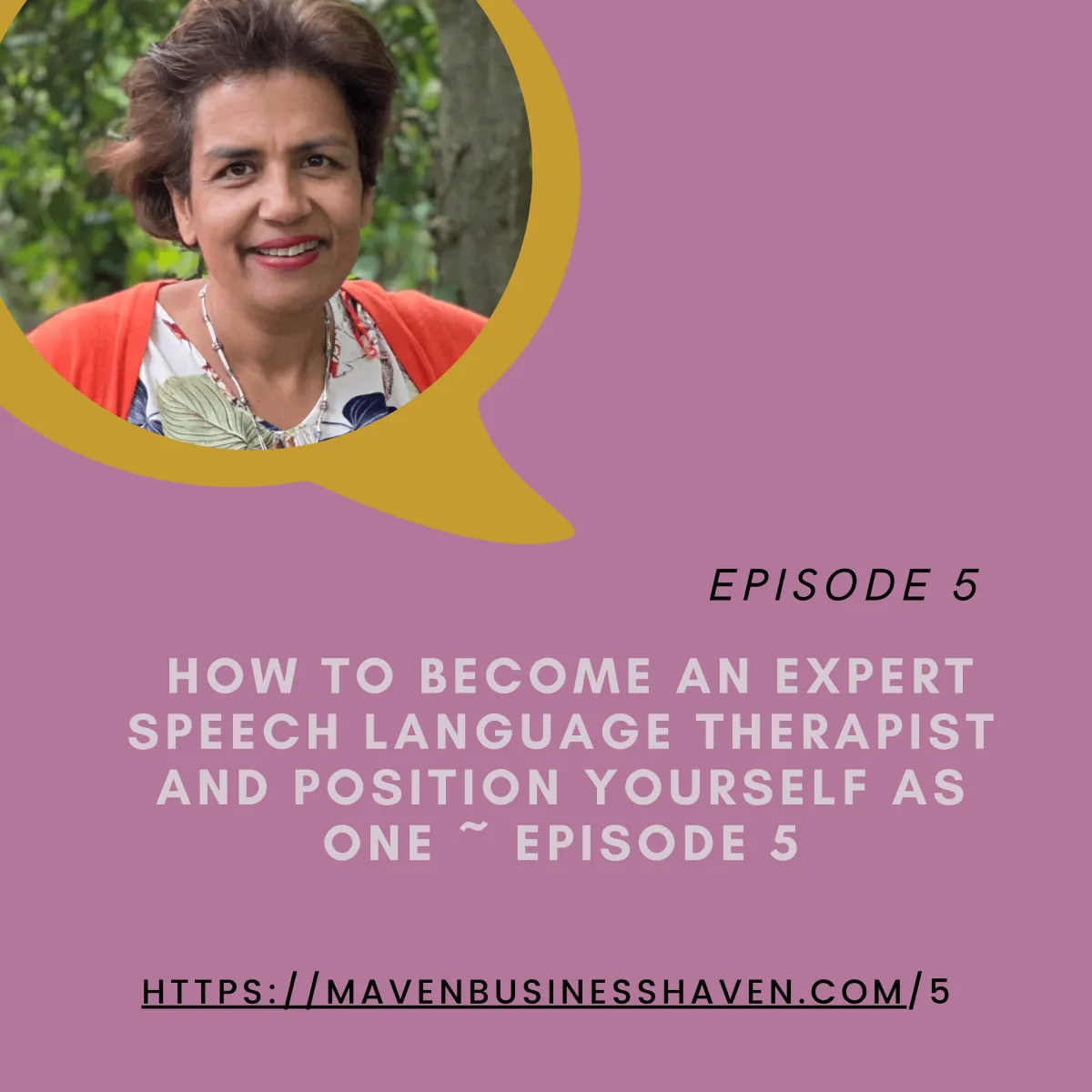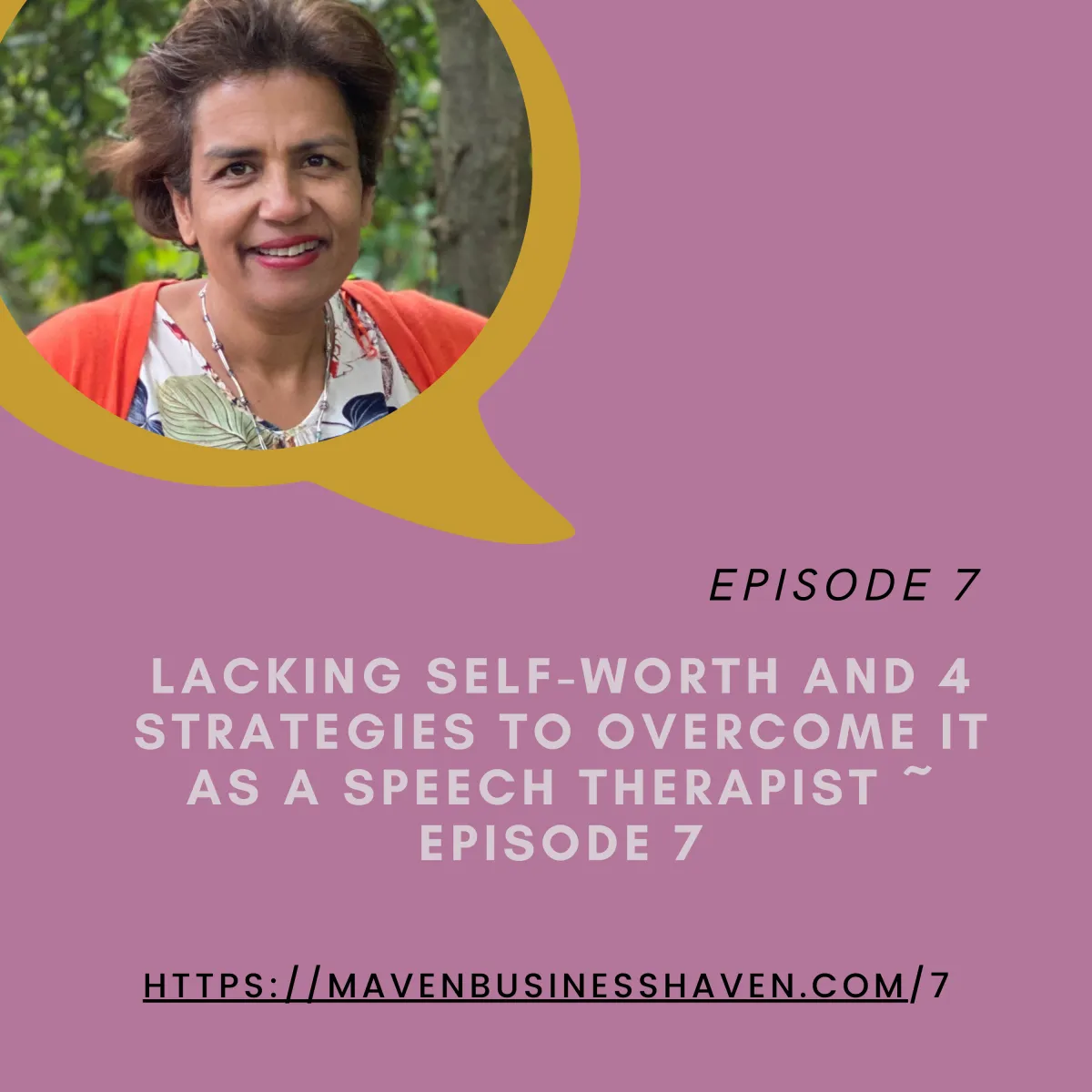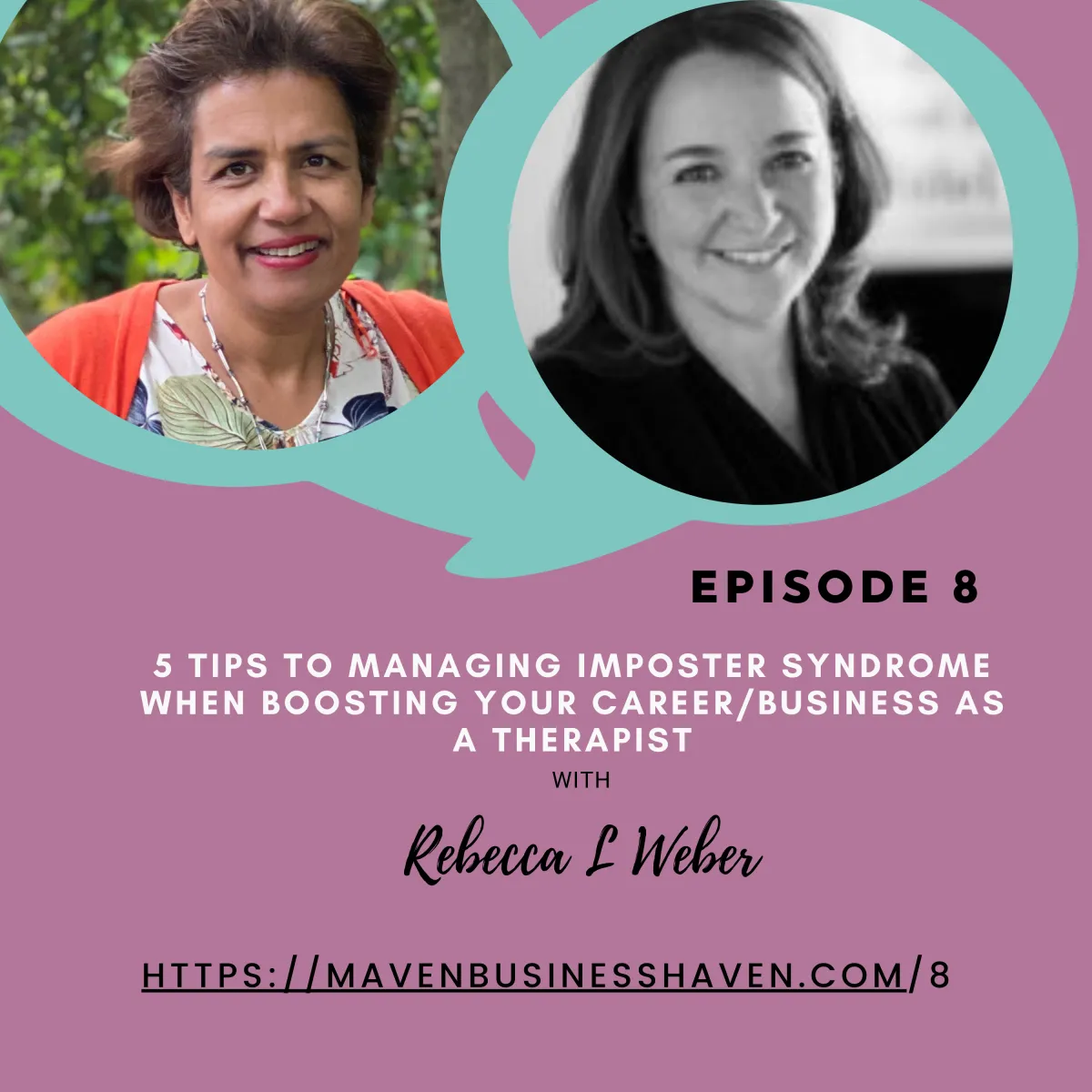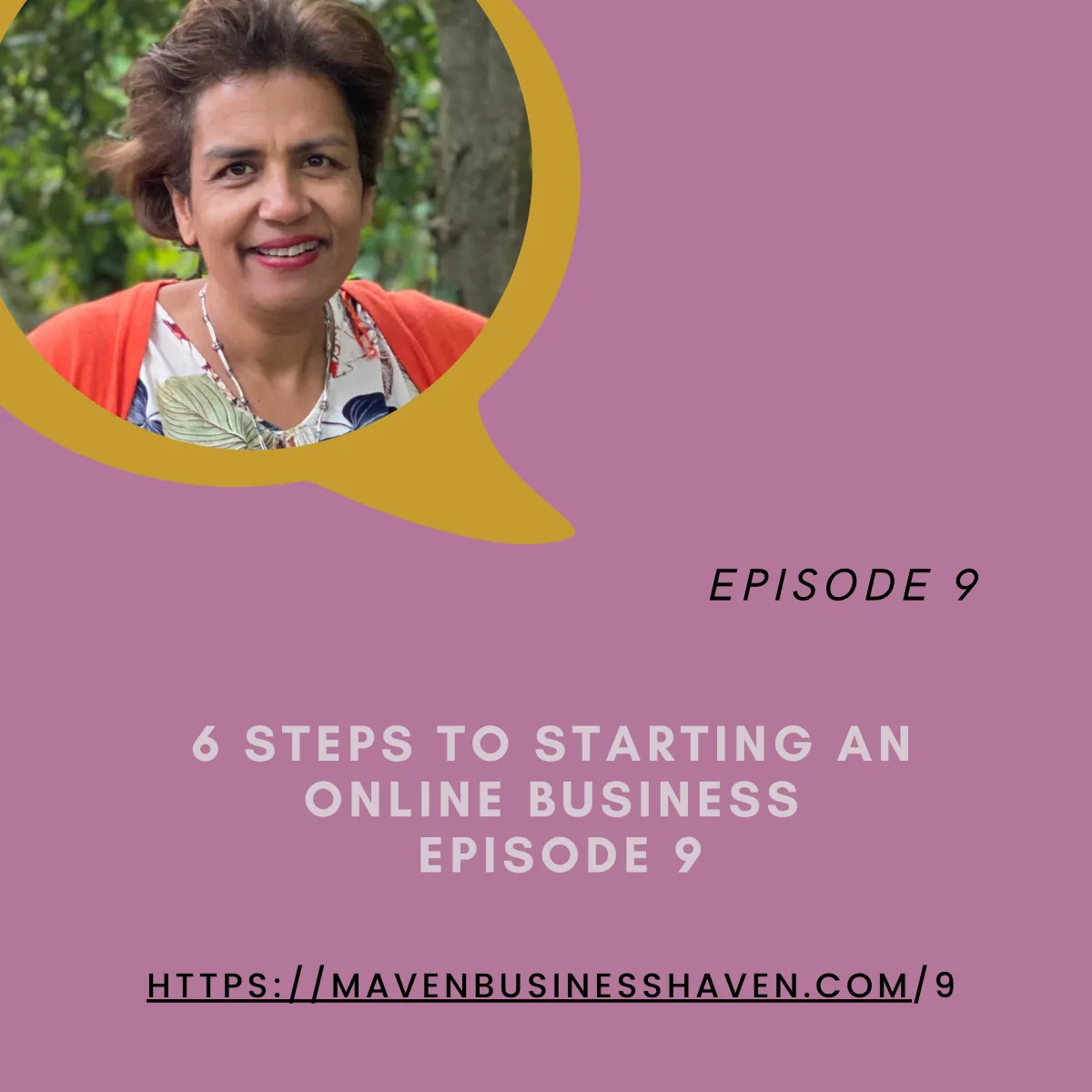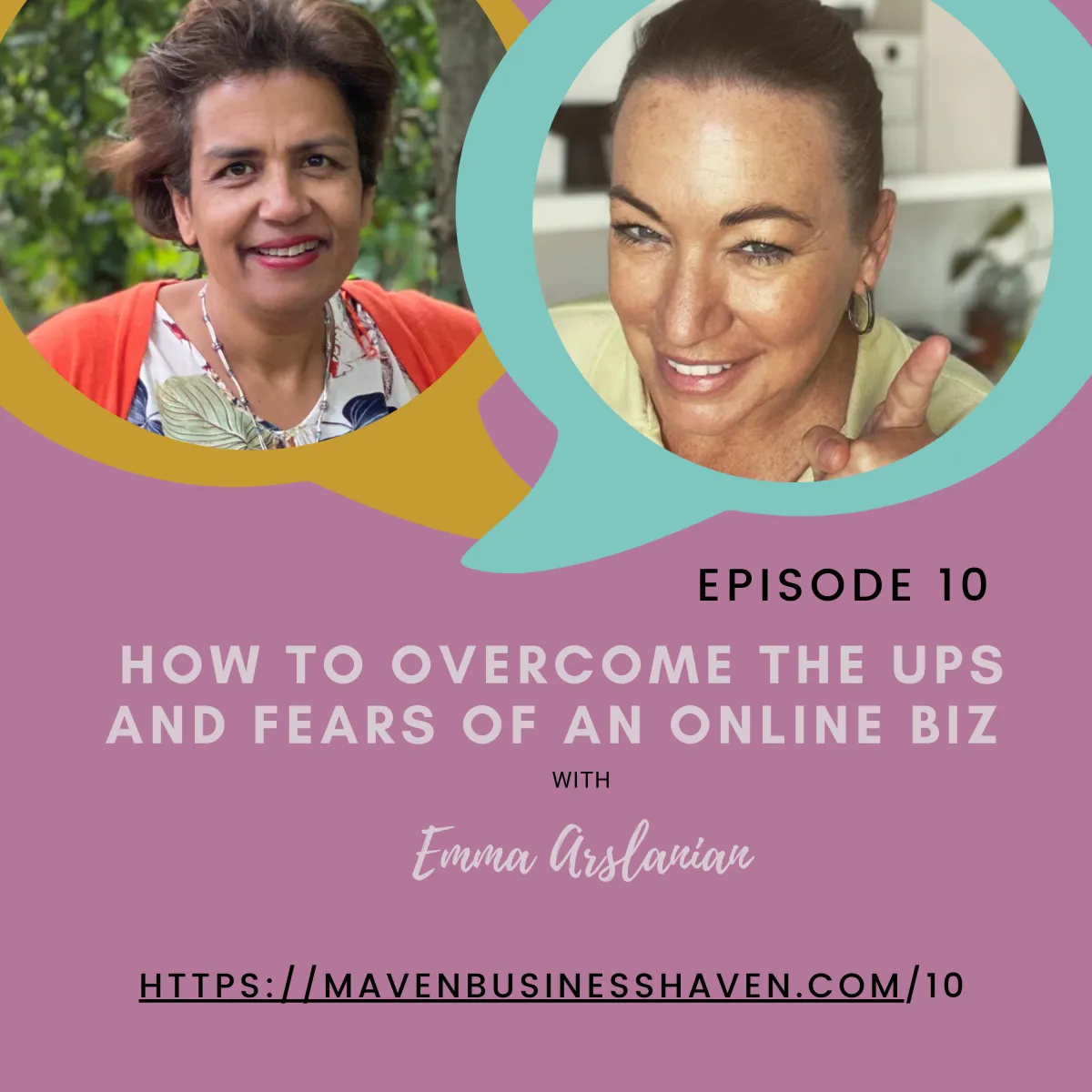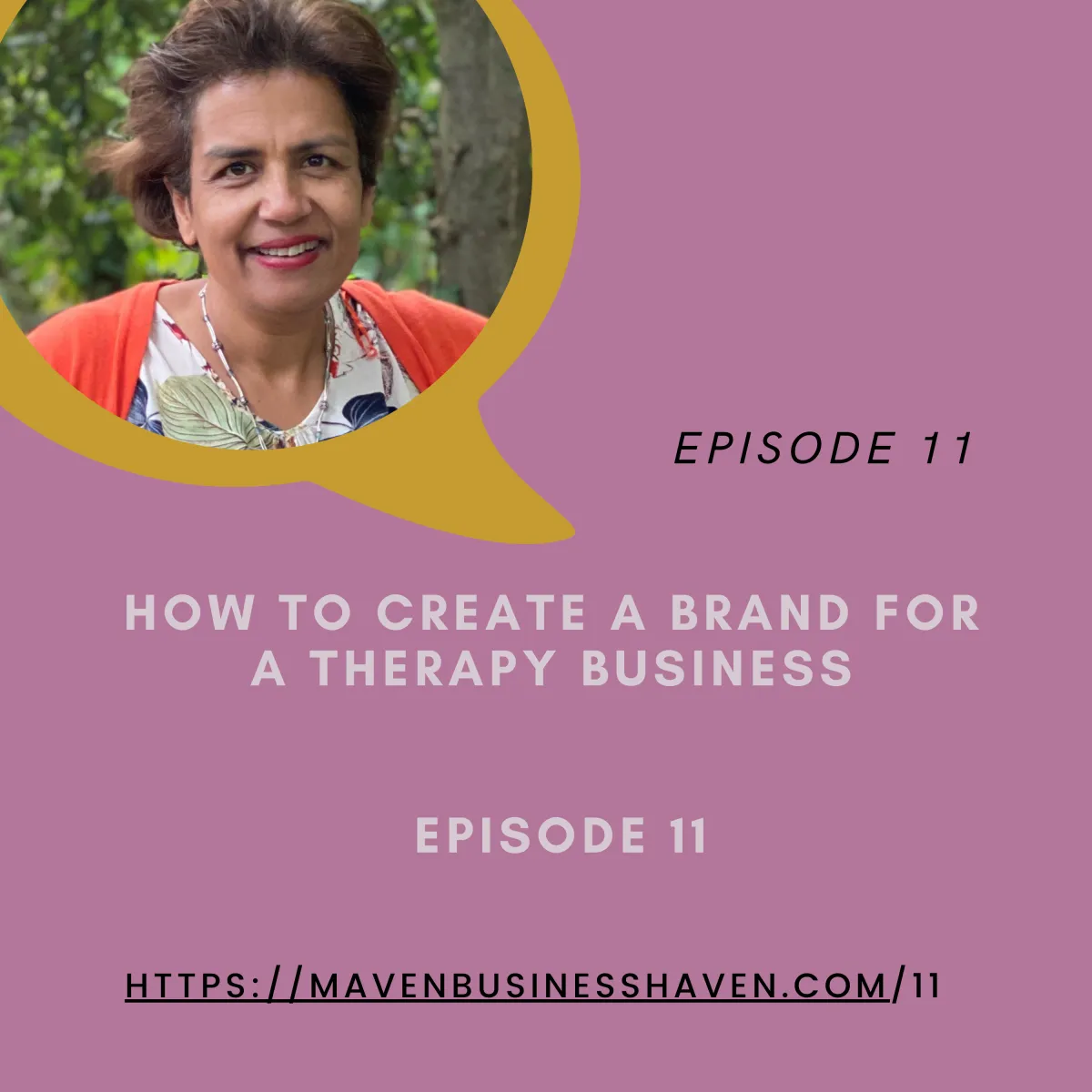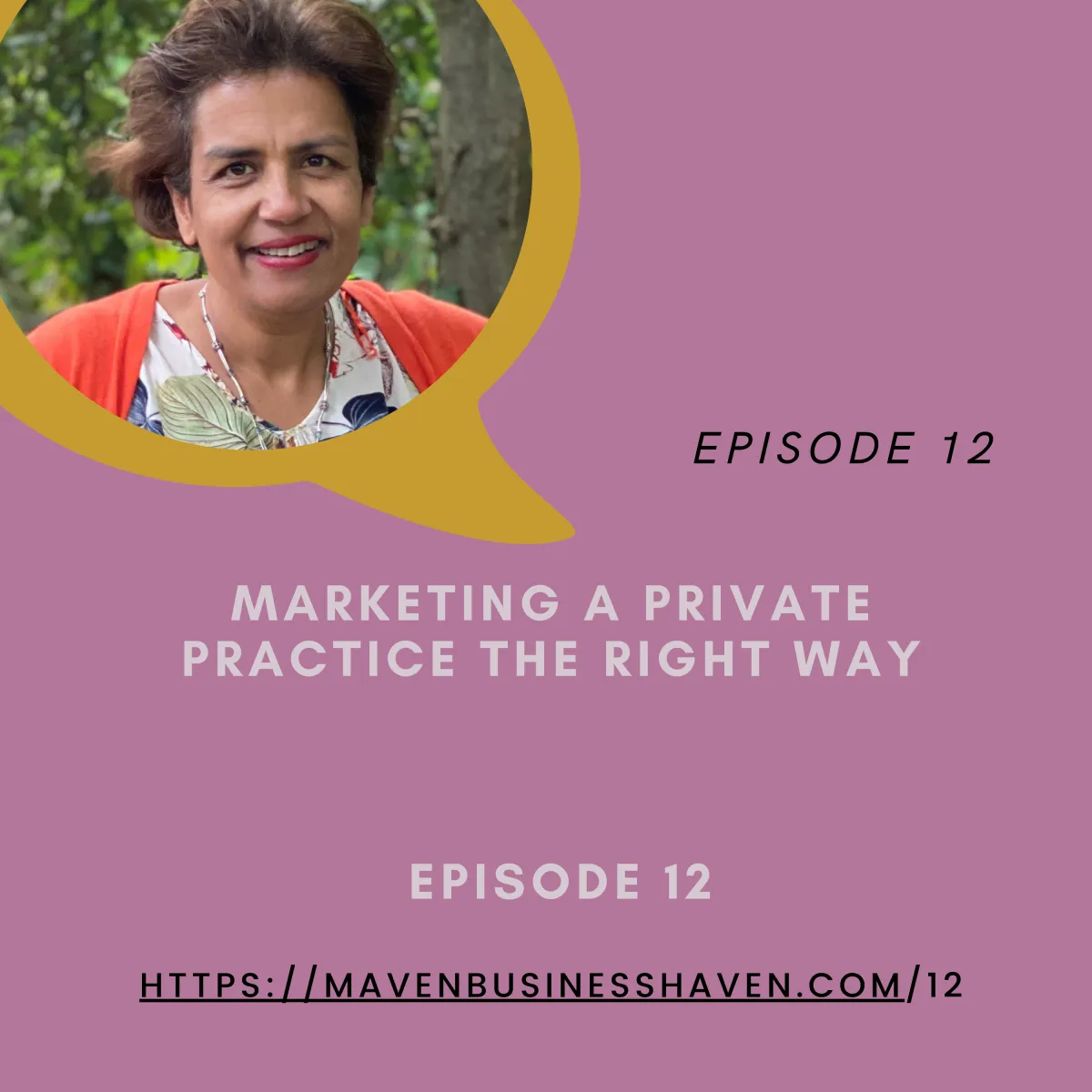VLOG
Audio Inspiration
Listening to podcasts inspires you, gives you clarity on what steps you need to take in your Therapy Business
Are you thinking of creating a website that resonates with your target audience and with space to jot down your ideas as you work through each step?
Then you need our
FREE WEBSITE WORKBOOK & PLANNER
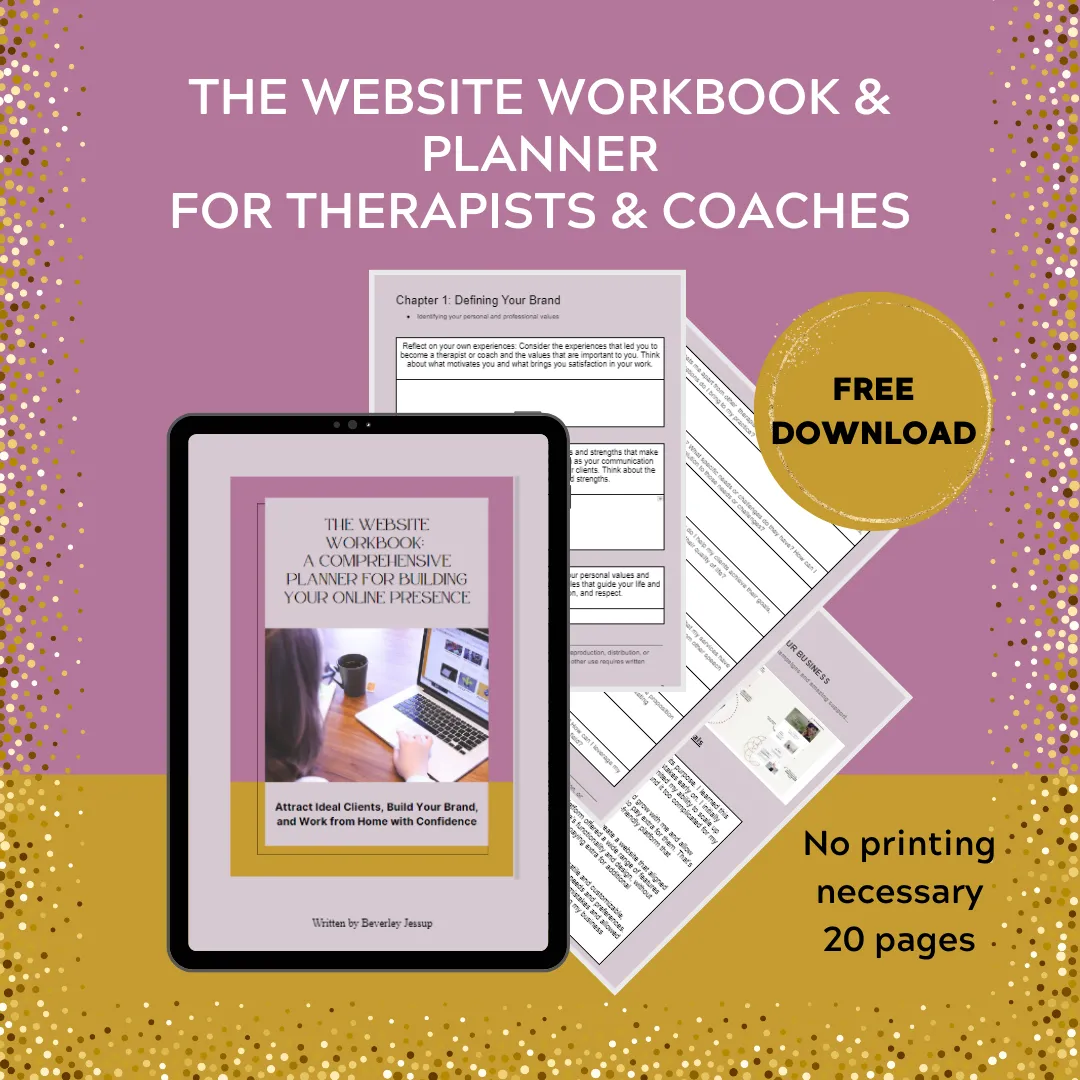
LATEST EPISODES

Building Clinical Confidence in Your Speech Therapy Private Practice
Building Clinical Confidence in Your Speech Therapy Private Practice
As a speech therapist transitioning into private practice, you may find yourself grappling with confidence issues, despite your extensive expertise and experience. This is a common challenge, particularly when you're stepping away from more structured clinical environments and into the autonomy of private practice.
In this blog, we will explore why many speech therapists experience a dip in confidence when starting their own practice, and more importantly, we will provide practical strategies to help you build clinical confidence. By implementing these strategies, you can strengthen your sense of professional identity and enhance your ability to provide the best possible care to your clients.
Understanding the Lack of Confidence
Transitioning into private practice is a significant step in any therapist’s career. Even with years of experience in schools, hospitals, or clinics, starting your own practice can feel like uncharted territory. Despite your qualifications and successful track record, a lack of confidence may creep in due to several factors:
1. Less Structured Support
In clinical or educational settings, decisions are often made collectively, with a team of colleagues or supervisors to turn to for advice or feedback. In private practice, you become the primary decision-maker. You’re responsible for treatment choices, administrative decisions, and the overall direction of your practice. The lack of immediate peer support can leave you feeling vulnerable or second-guessing your choices.
2. New Clientele
In private practice, you may find yourself working with client populations you have less experience with. For example, if you specialize in paediatric speech therapy, you may encounter adult clients with voice disorders or post-stroke rehabilitation needs. This can lead to doubts about your ability to manage cases outside of your comfort zone.
3. Business Responsibilities
Running a private practice involves balancing clinical work with business responsibilities. In addition to being an expert in speech-language pathology (SLP), you now have to handle marketing, billing, scheduling, and administrative tasks. It’s easy to feel overwhelmed by these additional duties, especially if you’ve had little training in business management.
4. Personal Life Events
Life doesn’t stop when you start a private practice. Personal challenges, such as family responsibilities, health issues, or financial concerns, can affect your confidence. It’s important to recognize that being a business owner doesn’t mean being immune to personal stressors that can impact your professional life.
Example: Consider a speech therapist who has spent most of their career treating children with articulation disorders. If they transition into private practice and start seeing adult stroke patients, they may experience a temporary dip in confidence, feeling less familiar with the therapeutic techniques required for adults.
The Importance of Confidence in Speech Therapy
Research consistently shows that a therapist’s confidence in their approach has a direct impact on the quality of care they provide. Confidence not only affects your ability to deliver effective treatment but also influences the therapeutic relationship between you and your client.
1. Therapeutic Relationship
Studies indicate that up to 30% of client progress can be attributed to the therapeutic relationship. Clients are more likely to engage and respond positively to treatment when they sense that their therapist is confident and competent. A strong sense of clinical confidence helps foster trust, making clients feel more secure and motivated to work towards their goals.
2. Better Client Outcomes
When you’re confident in your chosen therapeutic approaches and interventions, you’re better equipped to guide your clients through the treatment process. Confidence enables you to make decisive, evidence-based choices, which, in turn, leads to better client outcomes. This creates a positive feedback loop: the more success you experience with clients, the more your confidence grows.
As a speech therapist, building confidence in your approach to therapy is essential. Whether you’re using well-established techniques or exploring innovative new therapies, understanding why those approaches are effective for your specific clients will make a significant difference in how you apply them.
Navigating New Territories in Speech Therapy
Starting a private practice often involves expanding your skillset and knowledge. You may find yourself working with new age groups, exploring unfamiliar disorders, or integrating new therapeutic techniques. While this is exciting, it can also be daunting.
1. Learning New Therapy Techniques
As new research emerges and technology advances, it’s important to stay updated on the latest therapeutic methods. You might start incorporating new tools, such as technology-aided therapy methods, AAC devices, or telepractice into your sessions. Naturally, when you first adopt these methods, you might feel unsure about how to use them effectively.
2. Expanding to New Client Populations
If you’re expanding your services to include a broader range of speech and language disorders or new client demographics (e.g., working with adults after a career focused on children), your confidence may dip as you adjust to these new challenges. For instance, transitioning from paediatric to adult care can feel like you’re starting over, even though you’re already a skilled and experienced clinician.
Remember: It’s perfectly normal to feel like a beginner again when you’re learning something new, even if you’ve been practicing speech therapy for many years. This feeling doesn’t reflect a lack of skill or expertise—it’s part of the growth process.
Transitioning to Private Speech Therapy Practice
The transition from a clinical setting to private practice can feel like an entirely new field. While you were likely a highly skilled and confident speech therapist in your previous role, stepping into the world of private practice can trigger feelings of uncertainty. This is largely due to the new responsibilities that come with managing your own business.
1. Balancing Clinical and Business Skills
In private practice, your success depends not only on your clinical expertise but also on your ability to run a business. Marketing your services, managing billing, maintaining client relationships, and even handling legal considerations like insurance and contracts may feel like foreign tasks. These responsibilities can make you feel overwhelmed, especially if you’re balancing them alongside delivering high-quality care.
2. New Client Demographics or Therapy Focus
You may also experience a shift in the type of clients you serve or the disorders you treat. For example, a speech therapist who primarily worked with children in schools may start treating a wider range of speech disorders in private practice, such as voice therapy, adult stuttering, or swallowing disorders. This shift can cause temporary uncertainty as you adapt to a new therapeutic focus.
Action Steps to Build Your Confidence
To build clinical confidence in your private practice, it’s important to take deliberate steps toward self-reflection, goal setting, and continuous learning. Here are practical strategies to help you boost your confidence:
1. Reflect on Your Past Successes
Take time to reflect on the challenging cases you’ve successfully treated in the past. Consider the ways you helped clients make progress, overcame obstacles, and developed creative solutions to unique therapy challenges. Reminding yourself of these accomplishments can help shift your mindset from self-doubt to self-assurance.
Action Step: Create a “Success Journal” where you document past wins, client breakthroughs, and personal achievements. Revisit this journal regularly, especially when you’re feeling unsure or overwhelmed.
2. Focus on the Therapeutic Relationship
Remember that the therapeutic relationship itself plays a major role in client outcomes. Even if you’re feeling unsure about certain techniques, your empathy, compassion, and active listening skills are powerful tools in the therapy process. Clients often feel more motivated and engaged when they know their therapist genuinely cares.
Action Step: Prioritize building strong connections with your clients. Pay close attention to their concerns, celebrate their progress, and actively involve them in the treatment process.
3. Create a Personal Treatment Plan
Assess your areas of confidence and identify areas where you’d like to grow. Create a “personal treatment plan” for yourself, just like you would for a client. Set specific goals for improvement, such as mastering new therapy techniques, and outline the steps you’ll take to achieve them.
Action Step: Develop a three-month plan with measurable goals for building your skills and confidence. For example, if you want to improve your telepractice skills, commit to attending a teletherapy webinar, practicing the technology, and conducting a mock session.
4. Seek Specialized Supervision
Even as a licensed and experienced SLP, it’s perfectly acceptable (and highly beneficial) to seek specialized supervision when you’re working in unfamiliar areas. Whether it’s a new client population or a new therapy technique, having a mentor or supervisor to consult can boost your confidence and ensure that you’re delivering the best care possible.
Action Step: Identify an experienced speech therapist who specializes in the area you’re working to improve. Schedule monthly or bi-monthly supervision sessions to discuss challenging cases, ask questions, and receive feedback.
5. Join Peer Consultation Groups
Connecting with other speech therapists, especially those in private practice, can provide invaluable support. Peer consultation groups allow you to share experiences, troubleshoot challenges, and offer advice. This type of community can remind you that you’re not alone in your journey, and it’s a great way to exchange ideas and learn from others’ successes.
Action Step: Look for peer consultation groups through local or national SLP associations, or start your own with a group of trusted colleagues. Online platforms like Facebook groups or LinkedIn are also great places to find like-minded professionals.
Investing in Your Clinical Skills
Continuous learning is essential for maintaining and building confidence in your practice. Staying updated on the latest research, therapy techniques, and business strategies will ensure that you feel competent and prepared to tackle any challenges that arise.
1. Attend Workshops and Conferences
Speech-language pathology is a constantly evolving field, and attending workshops or conferences allows you to stay informed about new techniques, technologies, and best practices. These learning opportunities can reignite your passion for the field and remind you of your expertise.
Action Step: Attend at least one workshop or conference per year, either in person or online, focused on a specific area of speech therapy you want to strengthen.
2. Take Business Management Courses
Since running a private practice involves both clinical and business skills, taking courses on business management can provide you with the tools to run a successful practice. Topics such as marketing, financial management, and time management are all important for your success.
Action Step: Enroll in a business management course specifically designed for healthcare providers or small business owners. Many organizations, including the American Speech-Language-Hearing Association (ASHA), offer resources for private practice owners.
3. Join Professional Organizations
Professional organizations like ASHA (American Speech-Language-Hearing Association) or RCSLT (Royal College of Speech and Language Therapists) provide access to resources, continuing education opportunities, and networking events. Being part of these organizations can boost your confidence by keeping you connected to a community of professionals and up-to-date with the latest industry standards.
Action Step: Join or renew your membership in a professional organization and explore their resources for private practice therapists. Participate in their online forums or attend webinars to stay engaged with the speech therapy community.
Finding the Right Support System
Building clinical confidence isn’t something you have to do alone. Identifying and connecting with a supportive network of peers, mentors, and experts can make all the difference in your professional journey. Consider what type of support would benefit you most:
1. Find a Mentor
A mentor who has experience running a private speech therapy practice can provide guidance and encouragement. They can offer insights into both the clinical and business aspects of practice ownership, helping you navigate challenges and build your confidence.
Action Step: Reach out to someone in your network who has experience in private practice and ask if they would be willing to mentor you. Alternatively, look for mentorship programs through professional organizations.
2. Work with a Business Coach
If the business side of private practice is causing stress or uncertainty, a business coach can provide targeted support. A coach can help you develop strategies for managing your practice efficiently, marketing your services, and achieving your financial goals.
Action Step: Research business coaches who specialize in working with healthcare professionals. Many offer one-on-one coaching, group sessions, or online courses tailored to private practice owners.
3. Join a Peer Group
Peer groups are an excellent way to share experiences, ask for advice, and receive support from other speech therapists. These groups provide a sense of camaraderie and help combat feelings of isolation, especially when you’re running your practice independently.
Action Step: Look for local peer groups through professional associations, or join an online community for speech therapists in private practice. Many social media platforms have active groups dedicated to SLPs.
Conclusion: Embracing Growth in Your Speech Therapy Practice
Building clinical confidence in your private speech therapy practice is an ongoing process. By recognizing the challenges, seeking appropriate support, and investing in your skills, you can create a thriving practice where both you and your clients flourish.
Remember, every experienced private practice speech therapist started where you are now. The journey to confidence is one of growth, learning, and self-reflection. With the right tools and support, you can not only overcome your initial doubts but also thrive as a private practice owner.
Ready to Boost Your Clinical Confidence?
If you’re looking for more support in building your clinical confidence and growing your private practice, we’re here to help. At the Maven Business Haven Club, we offer resources specifically designed for speech therapists transitioning into or growing their private practices.
Join our community to access:
Expert-led webinars on the latest speech therapy techniques.
Business coaching tailored for speech therapy practices.
Peer support groups for sharing experiences and advice.
Resources on marketing your services ethically and effectively.
Special Offer for Dedicated Speech Therapists
Join the Maven Business Haven Club today , designed specifically for speech therapists in private practice.
Use discount code HNPEO75K at checkout to get 50% off your membership!
Click here to join the Maven Business Haven Club and start your journey to clinical confidence
https://mavenbusinesshaven.com/club
Don't let self-doubt hold you back from making a significant impact in your clients' lives. Let's work together to build your confidence and create a thriving speech therapy practice!

Hi, I'm Bev
a seasoned speech therapist with over 30 years of global experience.
When I’m not helping others communicate effectively, I'm enjoying precious family time with my husband and three sons. I also love exploring new destinations and hosting art journaling retreats.
But here's what truly fuels my passion: guiding therapists and coaches to build thriving practices without imposter fears or tech overwhelm.
My mission is clear: I want to empower more therapists and coaches to confidently share their talents with the world, thriving in purpose and creativity.
If you’re ready to turn your passion into a purpose-driven practice, count me in to support you every step of the way.






Fancy Joining us on a Retreat in Italy and meet other like-minded therapists and coaches?
Discover the transformative power of journaling to unlock your full potential as a therapist or coach. Our carefully crafted journals are designed to guide you through insightful self-reflection, goal-setting, and personal growth exercises, providing you with a valuable tool to delve deep into your thoughts and emotions.
By investing in your mind through these workbooks & journals, you'll gain clarity, develop new perspectives, and strengthen your practice, ultimately empowering yourself to better support and guide your clients on their own journeys of growth and transformation.
Don't miss this opportunity to enhance your skills and take your profession to new heights with the aid of our thoughtfully designed journal.


Hi there, I'm Bev Jessup
Even though I play an inspiring entrepreneur on the internet, I’m also a real person and a tired mother of three grown-up adorable boys.
I work purely online as a speech therapist and online consultant whilst my hubby Adam goes off to work.
I’m passionate about changing the world. And one extremely impactful way to do that is to empower speech therapists to share their talents worldwide and put more money in their hands in the process.

"My role in the world is to help therapists and coaches with their tech fears so that they can create a profitable online business without burnout"

You know that horrible feeling in your stomach when you feel that you don't want to work so many hours just to make ends meet?
Or when you procrastinate starting your own private practice because you don't know where to start?
Or the fact that your income has stagnated and you don't know how to push it to the next level? Or you are wondering how to get more clients without having to drop loads of fliers off at the GP surgeries or schools? Or you have dreamed of travelling and working at the same time?
I get you and I help therapists overcome these obstacles so they lead a more fulfilled life and business
Thank you for tuning in and letting me part of your journey. I know your dream is worth it so I want to encourage you to follow your dreams
PRIVACY POLICY TERMS OF SERVICES CONTACT US

